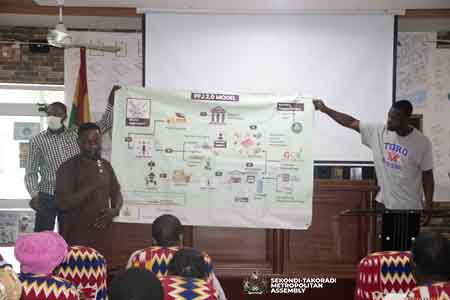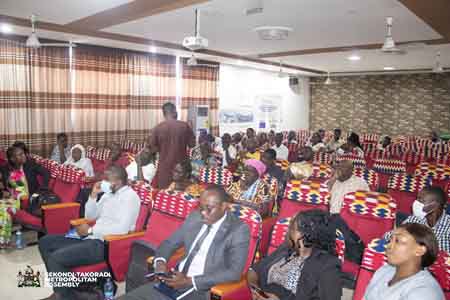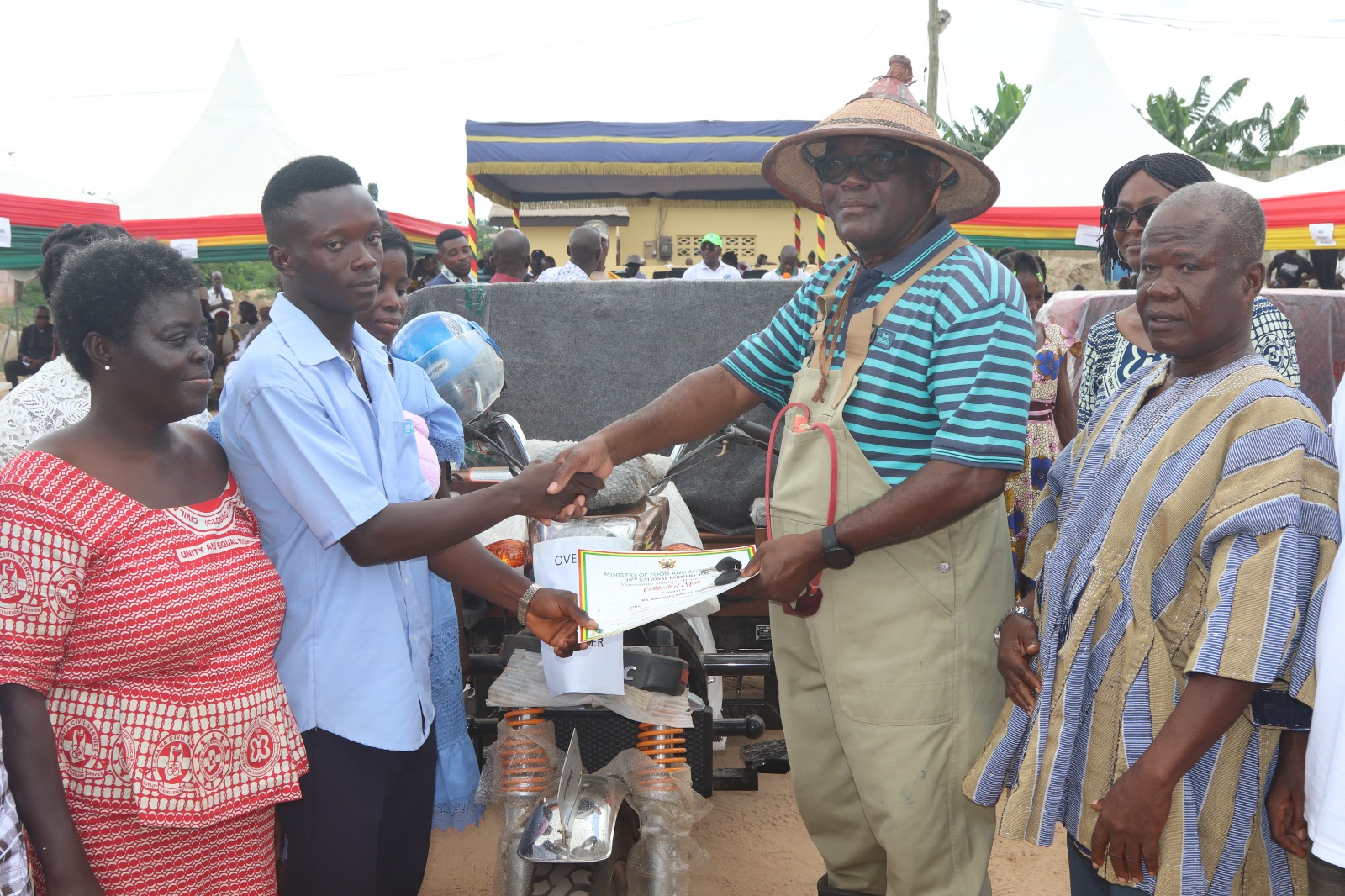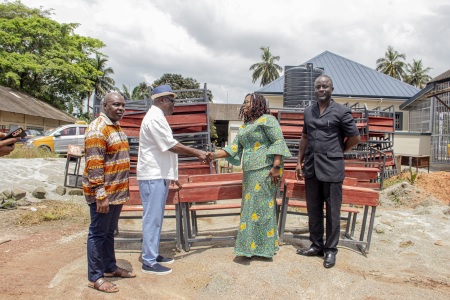
Contact Information
Sekondi Takoradi Metropolitan Assembly
Box 74, Sekondi – Western Region
Email: info@stma.gov.gh
GPS: WS-000-9679
This is just a simple notice. Get new Annoucements Check out the link.
Sensitization Workshop on Planting for Food and Jobs 2.0 Held in Sekondi-Takoradi for Farmers

A sensitization workshop for the second phase of Planting for Food and Jobs (PFJ 2.0), has been organized for farmers in the Sekondi-Takoradi Metropolis. The workshop aimed at creating awareness of the registration processes and the potential impact of the programme on farmers and the agriculture sector. The workshop was also intended to encourage farmers to take advantage of the benefits of PFJ2.0, which includes input credit, mechanization support, and extension services. The Metro Director of Agric, Mrs. Deborah Gyasi Frimpomaa, welcoming the participants, expressed his profound gratitude to the stakeholders for responding to their call out of their busy schedules. He stated that the PFJ2.0 is to correct the mistakes of PFJ1.0, which commenced in 2017 to 2022. He indicated that phase one of the program focused only on crops, whilst phase two, in addition to crops would be poultry. On his part, the Regional Director of Agriculture, Mr. John K. Gyimah, noted that his outfit will ensure that farmers are abreast with differences between phases one and two of the programme. He added that the government subsidize the cost of inputs such as fertilizers and seeds for farmers under the PFJ1.0. He indicated that this arrangement had some shortcomings.

He said some farmers smuggled the subsidized inputs to neighbouring countries such as Burkina Faso, Togo and Ivory Coast. Mr. Gyimah indicated that PFJ2.0 would supply farmers with the necessary inputs on credit. The arrangement will ensure that farmers increase their cultivation in terms of the variety of crops and acres of land, adding that this will ensure an abundance of foodstuffs and farmers benefit monetarily. He concluded that farmers are expected to harvest 40 bags of maize per acre under the PFJ2.0 and, therefore, encouraged farmers to participate fully to ensure a successful programme. In his presentation, the Regional Programme Officer, Mr. Abraham Appiah, noted the objectives of the programme, such as food security, increasing productivity and production, promoting import substitution, value addition and agro-processing, and creating jobs and wealth. He further noted the five elements of the PFJ2.0 as an input credit system, storage, quality input and supply service, digitized management, monitoring and coordination, off-taker arrangement and commodity trading. The priority commodities include rice, maize, soybean, sorghum, tomato, pepper, onion, cassava, yam, plantain and poultry.

Mr. Appiah concluded his presentation by explaining the respective roles played by the three key stakeholders in the PFJ2.0, namely the Master Aggregator, the Aggregator and the farmer. He stated that the Master Aggregator deals directly with companies or Input Suppliers. The Aggregator works under the Master Aggregator serving as a mediator between the Master Aggregator and the Farmers. He pointed out that the Aggregator only takes action upon requests from Farmers. He noted that one of the eligibility criteria to request inputs is for theindividual to own land. Addressing the participants, the Head of Central Administration, Mr. Michael Agyei, who stood in for the Hon. Metro Chief Executive, commended the farmers for heeding the call of the Assembly, making it possible for the workshop. He said the workshop aimed to enlighten farmers in the Metropolis to participate fully in the PFJ2.0 and enjoy the benefits the program intended to deliver.
END


